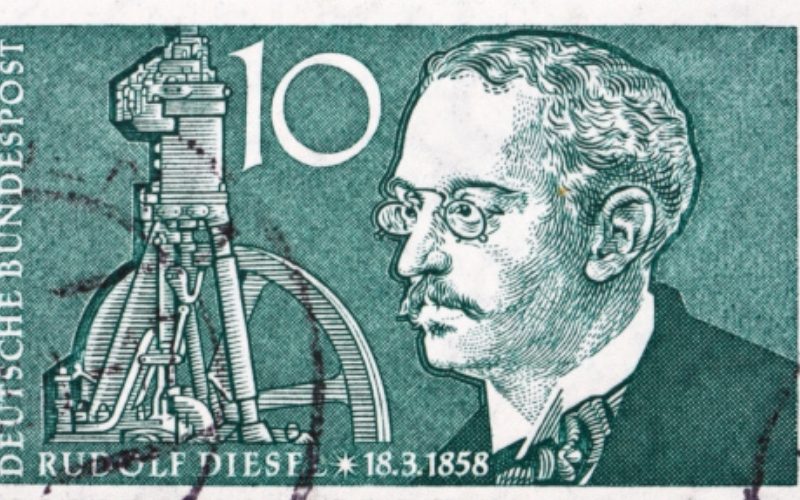by Erik L. Knutzen, CFA, CAIA, Chief Investment Officer—Multi-Asset, Neuberger Berman
With the calendar turning to August, it’s the time of year when many market participants will be seeking the opportunity to take a vacation, enjoy the Olympics and generally get a break from the relentless headlines.
It’s not going to be easy. We have been anticipating a pick-up in market volatility, and last week was full of market-moving events that are likely to resonate throughout the rest of the summer and beyond.
Weak U.S. job openings, hiring, jobless claims, unemployment and nonfarm payrolls data added to the sense of slowing growth and questions about the likelihood of a soft landing for the economy. Six of the “Magnificent Seven” mega-cap tech stocks have now reported earnings, with Meta and Apple exceeding expectations, but Microsoft and Amazon posting disappointing results last week. Together, this led to a broad sell-off in equities, as well as rates markets pricing for three cuts from the U.S. Federal Reserve by the end of the year.
The Fed did make its clearest suggestion yet that it would make its first rate cut in September, but faced tough questions about whether it should have cut this time around. The Bank of England also got moving with a 25-basis-point cut. The Bank of Japan hiked rates for a second time and signaled more to come, continuing its gradual policy normalization as the economy returns to inflation, but also triggering extreme volatility in the local equity and currency markets.
In the meantime, the incident-filled campaign for the U.S. election rumbles on, and a new front is threatening to open up in the conflict in the Middle East, with the constant potential to generate volatility, push up commodity prices and reawaken inflation concerns. We are watching these developments closely, amid the potential for further escalation over the coming days.
Disruptive Technologies
Hard as it may be, however, we are keen advocates of taking time to step back occasionally, especially when a summer holiday allows one to read a good book that offers a broader and longer-term perspective on those day-to-day headlines.
Last year’s vacation reading recommendation was about the engineering marvel that is the Brooklyn Bridge, and this year’s, Douglas Brunt’s The Mysterious Case of Rudolf Diesel, has another engineering classic at its heart.
Telling the story of the life, times, work and disappearance of the inventor of the diesel engine, this page-turner will appeal to history buffs, engineering enthusiasts and lovers of conspiracy thrillers alike.
As usual, I also selected this book because its themes made me reflect on our own times. It has a lot to say about the nature of disruptive technologies, particularly technologies that can be deployed in both powerfully constructive and destructive ways, and that bring negative externalities and trade-offs with their revolutionary benefits.
Technologies with these characteristics present challenges to both policymakers and investors today.
Trade-Offs
Brunt’s book details how Diesel became fascinated with thermodynamics and energy efficiency while studying under refrigeration pioneer Carl von Linde. His breakthrough was to use the heat generated by the compression cycle of a four-stroke engine to ignite its fuel, thereby doing away with the need for spark plugs and highly refined gasoline.
That still feels like a very modern idea in an age when we are increasingly trying to capture and recycle “lost energy”—the heat generated by factory machines, or the kinetic energy released by automobiles’ momentum or braking systems, for example—and harness “free energy” from the sun, the wind, the tides and gravity, in our efforts to move beyond fossil fuels.
But that modern idea came with negative externalities and difficult trade-offs, just as today’s energy transition does.
Diesel engines are more energy- and fuel-efficient than gasoline engines, and they emit less greenhouse gas and consume fewer raw materials. But those sustainability gains come from running on less-refined fuel, which emits more polluting particulates than gasoline. Even with modern diesel engine’s “aftertreatment” systems, there is a trade-off between cutting global greenhouse gases or reducing more localized pollutants, which many municipal and national governments have struggled to balance.
Similarly, our current approach to tackling climate change requires energy and electrification infrastructure that places substantial new demand on a range of commodities. Renewable energy is therefore unlikely to end the geopolitical challenges of resource scarcity and allocation, and extracting those resources will impose new environmental and social costs that need to be debated and managed, especially as greater energy efficiency stimulates ever greater demand.
The Promethean Story
Diesel was not only forward-looking as an engineer. He was also thoughtful about the good—and the ill—that his invention might do in the world. He understood the mythic Promethean story about the discovery of fire: that his invention could power the machines that generated prosperity, but also the machines of mechanized warfare.
His response was to license his technology generously to make its benefits widely available and, when its military applications caused it to get caught up in the great-power rivalries of the time, he did his best to prevent any one country from using it to attain technological supremacy.
Diesel disappeared while crossing the English Channel in 1913. Not everyone buys Brunt’s theory about what happened—and we won’t spoil readers’ fun here. Suffice to say that the circumstances were suspicious, and that Diesel was on his way to London to set up a company that would help strengthen Britain’s submarine capabilities, having become increasingly concerned about the plans that Kaiser Wilhelm II had for his engines.
But Kaiser Wilhelm is not the only suspect in the mystery: Some have suggested that Standard Oil founder John D. Rockefeller could not allow Diesel’s fuel-efficient invention to quench the world’s growing thirst for oil and gasoline.
Whodunnits aside, modern investors face the same dilemmas as Diesel did a century ago.
In the 21st century, advanced microchips have the potential to power both industrial and military data processing and artificial intelligence. Advanced gene technology could enhance medical treatments and food production worldwide, or be deployed as biological weaponry. Fossil fuels and their producers have an important role to play in the current energy transition, but may also exacerbate the challenges of decarbonization.
And we must be cognizant of the strategic risks and economic opportunity costs associated with allowing today’s critical technologies—from genomics, vaccines and GLP-1 agonists to semiconductors, chip-manufacturing processes and artificial intelligence—to remain concentrated in one or two dominant, Standard Oil-like firms, or indeed one or two superpower states.
Balancing the rights of capital providers, inventors and entrepreneurs with the security of citizens and states and the optimization of the broader economy is likely to become more difficult in our hyper-technological age. Will governments and investors fall into a confrontational zero-sum game, or can they honor Diesel’s ideals and use today’s emerging technologies to pursue industrial, food, energy, data and health security for the broad population?
Progress
Regular readers of these summer reading posts will know that we have a lot of faith in human ingenuity and the potential for technological innovation to help us overcome our greatest challenges.
As investors, however, we also need to be realists. We recognize that trade-offs and sacrifices will need to be made, and that progress doesn’t come for free. And the conflict in Ukraine, rising tensions over the status of Taiwan and last week’s escalations in the Middle East are a sad reminder that high ideals and economic progress can break upon the hard walls of geopolitics, just as they did a century ago. Rudolf Diesel’s engine was not monopolized by a single superpower, nor was its contribution to 20th century progress curtailed by a jealous oil industry—but Diesel himself had to work hard, and may have paid a steep price, to make that so.
What does Douglas Brunt believe happened to the great man? To find that out, you’ll need to read the book. We hope you find a few quiet hours, amid these volatile and fast-moving markets, to do so.
*****
In Case You Missed It
- Eurozone Q2 GDP (Preliminary): +0.3% quarter-over-quarter
- S&P Case-Shiller Home Price Index: May home prices increased 1.0% month-over-month and increased 6.8% year-over-year (NSA); +0.3% month-over-month (SA)
- U.S. Consumer Confidence: +2.5 to 100.3 in July
- Bank of Japan Policy Rate: The BoJ raised its target policy rate to 25 bps
- Eurozone Consumer Price Index (Flash): +2.6% year-over-year in July
- July FOMC Meeting: The Federal Reserve held interest rates steady
- China Manufacturing Purchasing Managers’ Index: -2.0 to 49.8 in July
- ISM Manufacturing Index: -1.7 to 46.8 in July
- U.S. Employment Report: Nonfarm payrolls increased 114k and the unemployment rate increased to 4.3% in July
What to Watch For
-
- Monday, August 5:
- Eurozone Producer Price Index
- ISM Services Index
- Thursday, August 8:
- China Consumer Price Index
- China Producer Price Index
- Monday, August 5:
Investment Strategy Team
Copyright © Neuberger Berman















